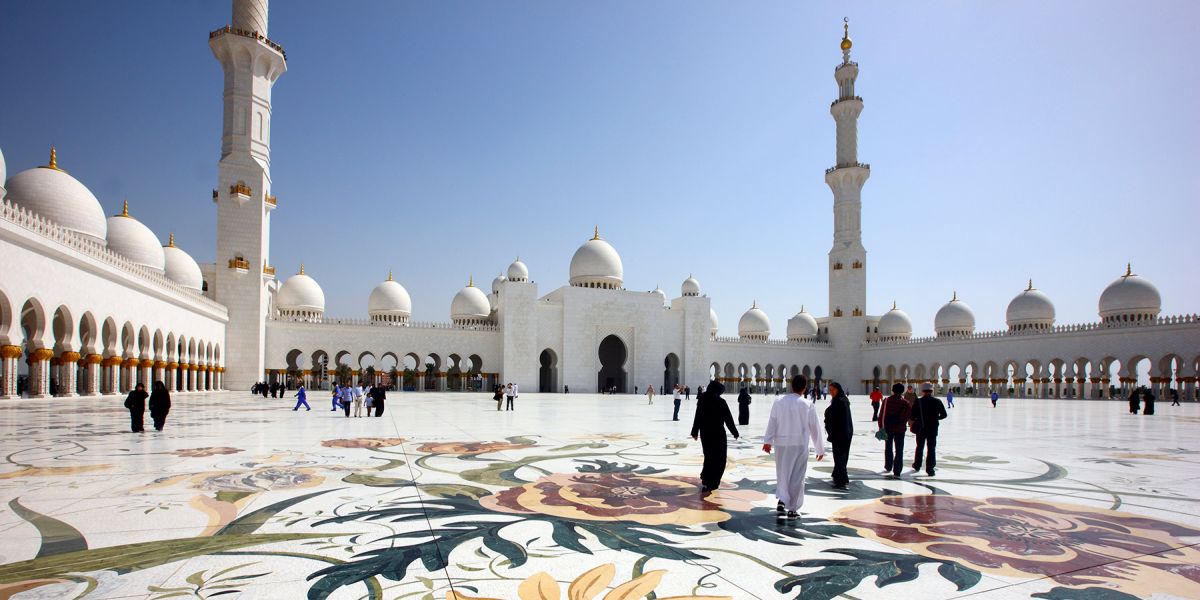Whether it was the early Islamic period, the Muslim rule of Iberian Peninsula, in South Asia or the almost 6 hundred year Ottoman rule of various territories across Middle East, Africa & Eastern Europe, Islam has always provided space for non-Muslims communities. It has permitted for them to live and practice their faith peacefully. Their places of worship were largely protected and even provided new spaces for worship. Throughout Islam's almost 15 century history non-Muslims thrived under rule of the Islamic Empires. This was primarily due to the Quran that guided Muslims on treatment of their non-Muslim subjects.
The process of revelation and guidance started with Prophet Adam (alaihi salaam) and throughout history Allah ﷻ continued sending Prophets to various nations with guidance. Each nation received a revelation of their own. Quran is a completion of that process. The difference between the previous revelations (such as Bible, or Hindu Bhagvad Gita) and the Quran is that former were sent to a certain community and valid for that time but the latter is the final book of guidance for all humanity. Since Quran is the final revelation for humanity, and relates to what other communities already possess, it educates the Muslims about this historic fact. It then guides them to preach Islam through beautiful manner of persuasion, and forbids against the vice of intolerance. The Quran teaches that Islam, meaning "self-submission to the will of Allah", was always the "correct religion in the sight of Allah" (Al Quran 3:19) but also reminds that "there is no compulsion in matters of faith" (Al Quran 2:256, 18:29). Further it enjoins to inform others that "your God and our God is one" (Al Quran 29:46). If people of other faiths refuse to listen and use their reason then we are highly advised to say that "you have your own religion and I have my own" (Al Quran 109:6).
The Quran emphasizes how each nation is used to following their own way as handed down through traditions of their religious communities and advises Muslims that the best thing is not to argue over beliefs, but to race with each other towards righteousness: "To each among you, have We prescribed the law and open way. If God had willed He would have made you all of one pattern; but He would test you by what He has given to each. Strive with each other in doing good" (Al Quran 5:48). And it is in this regards that we are commanded to set precedent for others in doing good and follow Prophet Muhammad ﷺ, whose best example is a precedent for us, so that we bear witness for the rest of the world to decide what is best religious way of life: "And thus have We willed you to be a community of the middle way, so that [with your lives] you might bear witness to the truth before all mankind, and that the Messenger might bear witness to it before you." (Al Quran 2:143)
Not to forget that Quran encourages Muslims to maintain friendship with such non-Muslims "as do not fight against you on account of [your] faith, and neither drive you forth from your homelands, God does not forbid you to show them kindness and to behave towards them with full equity: for, verily, God loves those who act equitably." (Al Quran 60:08) The tolerance in the Quran is not limited to the sphere of social and communal relationships but also obligates Muslim rulers to protect and honor houses of worship of other religions under their authority. This is despite major disagreements of Islam with practices and beliefs of those religions. Amazingly the first verses revealed to Muslims commanding them to militarily defend against the religious persecution by their enemies did not single out Muslim place of worship. The command included "monasteries and churches and synagogues and mosques - in [all of] which God's name is abundantly extolled" (Al Quran 22:39), emphasizing that all are sacred and permitted to be defended in the case of injustice and persecutions.
The tolerance in the Quran extends to such a high degree that if any human believes in one God, in accountability on judgment day and lives a righteous life based on that faith, whether Muslim or a non-Muslim, are considered righteous in the sight of Allah ﷻ: "Verily, those who believe (that is Muslims) and they who follow the Jewish religion, Christians and the Sabians... whosoever believes in God and the Last Day and does that which is right shall have their reward with the Lord. Fear shall not come upon them, nor shall they grieve." (Al Quran 2:62)
Hence Quran not only fully explains the facts of humankind's religious experience and proves the authenticity of its message, but simultaneously reminds its followers to be patient and tolerate what differences they notice in religious observations of others, and let Allah ﷻ decide for them on judgment day: "...To Allah you will all return, then He will inform you of the truth regarding your differences." (Al Quran 5:48)








0 Comments